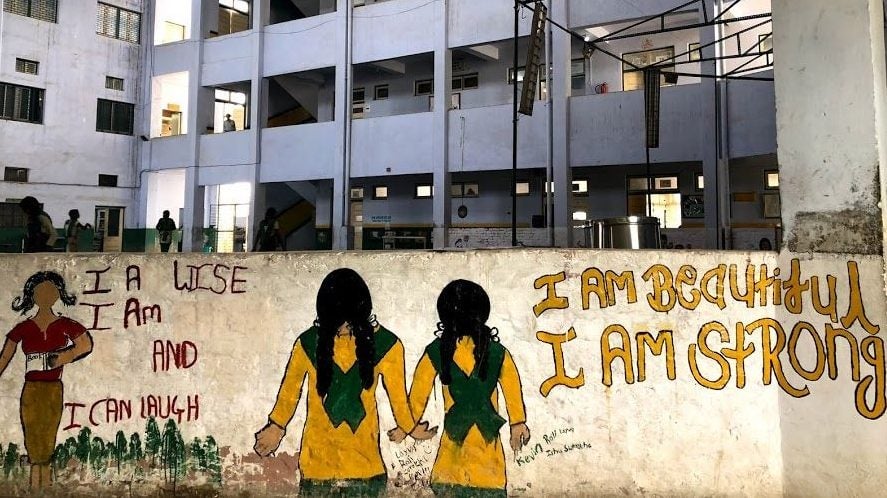A school girl in rural India taught me to normalize mental-health issues—with a simple question
Anupshahr, india


Anupshahr, india
A couple of months ago, I traveled to Anupshahr, a town in the Bhulandshar district of rural Uttar Pradesh, the most populous state in India. It’s not a pretty place—in fact, it’s one of the worst places one can possibly go to. It’s polluted, dangerous, and violently misogynist. It’s poor and discriminating beyond belief.
But, it has its oases, like the one I went to visit. With a grant from the Pulitzer Center on Crisis Reporting, I spent a few days with the students, teachers, and staff of Pardada Pardadi Education Society, which run a K-2 school for poor girls. The school—and the affiliated programs—are bringing about the most adorable feminist wave one could imagine: One poster, song, and game at a time, the girls learn that they are worth as much as boys, and so do their families, and communities.
It’s a revolutionary concept, for Anupshahr and for much of the world.
I spent time with the students (there are 1,400 enrolled by Pardada Pardadi), both at school and in their homes where they return every day after school. Some were shy, other bolder; all already had to deal with unimaginable obstacles—being poor, low caste and, on top of it, girls.
They were bright, funny, curious. I attracted much of that curiosity—I stood out so much in my blond hair and western clothes that at one point, while visiting one of the villages where the students lived, I found that a crowd had gathered to check me out, showing enormous interest in me and none in a goat that had climbed onto the roof of the village’s mosque and was casually chilling up there.
As a small attempt to address the power dynamic of reporting in such a situation (I was acutely aware that, while of course they were free not to speak with me or answer my questions, the girls might not feel completely at ease doing so), I encouraged the curiosity, and welcomed questions.
Once after talking with a class of 11th graders, I asked if they had any questions for me, after I asked so many to them. I was surprised by the speed at which they fired away: Being older, their English was better, which might have given them more confidence.
Where was I from, how was my home like, was I married, did I have kids, did I live with my family, what was the job of a journalist like. They wanted to know it all. Towards the end of the meeting, Renu, a tall, confident girl who’s the basketball team captain and has plans to pursue a career as a coach, asked me a question I will hardly forget.
“Ma’am,” she wanted to know, “how are your feelings?”
“Excuse me, come again?” I asked. I didn’t really get her question initially.
“Your feelings, ma’am?” she said. “How are your feelings today?”
I don’t know whether the question was deliberate, or just her way to ask “How are you today?” (This might be because I am one myself, but I believe non-native speakers have a way to come up with very poetic replacements to common expressions in their other languages.)
Regardless of her intentions, I don’t think anyone has ever asked me a better question: How were my feelings that day?
Unlike the vagueness of “How are you?” this is a specific expression of interest. It doesn’t allow for vague answers such as automatic, and at times insincere “Good!” nor to deflect the attention to being tired, ill, busy—or other issues that we might consider more acceptable to share than being sad, or anxious, or scared.
And while doing all this, it separates our feelings from ourselves and made them impermanent in a way that is refreshing, and relieving. Like many, many others, I live a life of on and off struggling with—well—my feelings. Depression, anxiety, and the happy, calm days in between: It’s easy to identify yourself with them.
But what if it wasn’t me—just my feelings, just today?
As I sat in front of Renu and her classmates somewhere in rural India, a country that, for all its trouble, never fails to give me unimaginable, unexplainable joy, I felt pretty great. And so I told her:
“My feelings are very good today, thank you. And how are your feelings?”
She didn’t just ask good questions, Renu. She also had good answers. “Ma’am,” she said, “my feelings are fantastic!”
In that very moment—so were mine. Coming to think of it, in all their shapes, they always are.